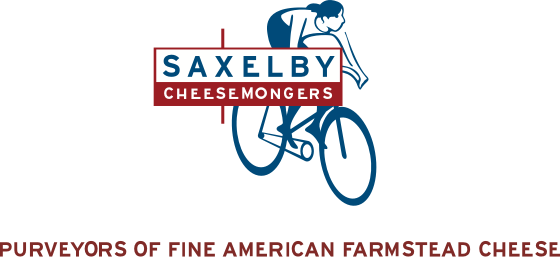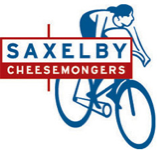
Mike Koch insists he's not a doomsday prepper, but he's keenly aware of how fragile our food supply chain can be. "The American mindset has been that all my food should be cheap and I should be able to get fresh raspberries in February," he says, "and I think something may come along that reminds us that we have to be more conscious about where our food comes from." It's hard to disagree after the past few years. Pandemic shipping delays, unpredictable weather, and yo-yo-ing food prices have revealed the ways we take our daily foods for granted. At FireFly Farms in Accident, Maryland, Koch and his husband Pablo Solanet are working towards an alternative. Their goat's milk creamery doesn't just sustain small dairy farmers; it's a working model of how to build a more resilient local food system.
FireFly is the maker of our deliciously fresh and tangy chevre, as well as the aromatic Cabra la Mancha and the bark wrapped Merry Goat Round Spruce Reserve. Koch takes particular pride in the the freshness of their milk: "it's all processed within 24 hours of milking, so there's no opportunity for the lipolysis breakdown of fatty acids" that can lead to undesirable flavors in the cheese.

Koch and Solanet were early converts to the slow food movement during the mid 1990s, "before we had those words to describe it," he says. They bought their farm in 1997 with the intention of becoming farmstead cheesemakers. Koch's grandparents ran a family farm in Iowa; Solanet grew up in Argentina, where his grandparents operated a large cattle ranch. Still, neither of them had any personal experience farming or making cheese. They bought a small herd of 30 Nubian goats in 1999 and figured out the business through trial and error. By 2006, their herd had grown to 450.
As FireFly matured, the demands of their cheese production outpaced the realities of running a farm with a small staff, so Koch and Solanet sold their herd to a nearby farm in 2006 and sought out local sources of goat's milk. Their corner of Appalachia is home to a sizable community of Amish and Mennonite family farms that specialize in herding goats, but "the market was not favorable to farmers" at the time, Koch says. A single regional buyer set the price for goat's milk, regardless of the farms' production costs. This is a common story in rural regions across the eastern United States: dairy buyers keep consolidating while small family farms are forced to compete with vast industrial operations.
Even still, farmers were cautious about turning away from an institutional buyer in favor of an upstart creamery. Koch was cautious too, wondering how traditional religious families would take to a tattooed gay couple that moved into town. What he found was "a beautiful spirit of warmth that cracked my face and shut my mouth," he says. "You learn in life that the expectations you carry into interacting with someone are often not remotely close to what you receive."

Slowly, Koch and Solanet built a relationship with an influential local farmer, Levi Byler, and word began to spread among the agricultural community. Byler has since retired, but his daughter, Fannie, is married to another farmer, Elmer Yoder, who also supplies milk to FireFly. Koch and Solanet also get milk from the descendants of their original herd.
At its peak, FireFly bought goat's milk from 17 farms in a 40 mile radius. They currently buy from 13 farms, to the tune of 1.8 million pounds of goat's milk in 2023. "We're literally at their farms every other day," Koch says. "When I have a bad day, I think how these farmers are able to live a way of life that's fast disappearing." In 2015, FireFly started sourcing cow's milk to support even more farmers in the region, which also helped the creamery stabilize its production through the seasons.
While conventional buyers punish dairies for underproducing in lean months, FireFly works with its farmers to forecast changing yields through the year, as goats enter and exit their seasonal milking cycles. The job is an incredible balancing act, with varied amounts of milk arriving on one side of the scale, and an assortment of fresh and aged cheese to make on the other. Koch considers these changing rhythms an essential part of the "evolutionary miracle" that is fluid milk. "Cheese is all about preserving protein, and creating a food that's been a part of our diets for centuries," he explains. Nature doesn't care about balance sheets. But cheese is a way to make the most of abundance during good times, so that we have a reliable source of nutrition during dry periods.

Everyone who works on FireFly's manufacturing side begins in the cheesemaking room, Koch notes. It's important to him and Solanet that their staff gain an appreciation for the physical work and exacting cleanliness required to make cheese. The team is also serious about its energy footprint and waste streams. In 2015, FireFly finished construction on a solar panel system that supplies about half of their electricity. Leftover whey from cheesemaking is donated to nearby farms as a nutrient-rich animal feed and fertilizer.
"We started FireFly as a way to reconnect with our family histories," Koch says, "and to support small farms and the rejuvenation of our food system." That's a tall order for a goat cheese maker, but 25 years of cheesemaking show they're making important progress, one log of chevre at a time.
Try FireFly Farms' amazing cheese for yourself!
Farm photos courtesy of FireFly Farms.

